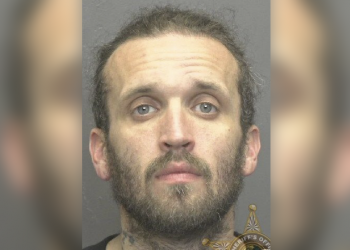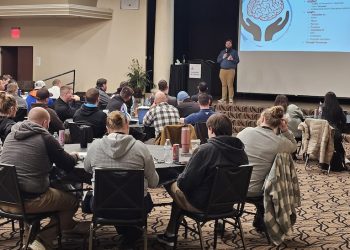IU President Michael McRobbie is stepping down in June, allowing for a wave of new leadership and change to come to our beloved campus. However, the search committee tasked with finding a new university president is 75% white.
The 18-member committee, made up of nine men and nine women, is disproportionately white when compared to the student body. Across all IU campuses, 66% of students are white. Because of this, the search for a new president has gone forward without the voices of several underrepresented groups fighting to be heard on campus.
Even though this committee claims reviewing candidates of different backgrounds as a top priority, this promise is about as concrete as a New Year’s resolution.
“If we didn’t meet the other numbers in diversity, we certainly feel that the committee that we have are made up of people who have this at the top of their charge,” IU spokesperson Chuck Carney said in a Jan. 11 Indiana Daily Student article.
It is not enough to “feel” the committee is prioritizing diversity. Students need tangible reasons to trust the selected committee, which the university has failed to do by not prioritizing diversity in the committee’s membership.
Enough is enough. No more making promises or only saying you’re prioritizing diversity. When decisions about the university are being made, it’s time regulations are put in place to ensure there is equal representation of all students who call IU home.
Students have already demonstrated how to make certain underrepresented groups are heard. In IUSG’s Congress, students in and outside of government fought for guaranteed representation across a wide range of identities. Passed in December, the amendment adds a minimum of 31 seats in the body of Congress for a wide-range of multicultural groups and will go to the student body for ratification on Jan. 22.
The university’s administration should follow the lead of their own students and expand the committee to hear all voices.
If this means making committees bigger, then that’s what needs to be done. If this means allowing more students from a variety of organizations to participate, then what harm could the leaders of our university experience from hearing their opinions?
Campus leaders such as Kelley School of Business Director of Diversity Carmund White said he expected a lack of diversity. If a disproportionately white committee was an expectation, why didn’t the university do something beforehand to prevent it?
The university wasn’t listening or considering listening to traditionally underrepresented groups when developing the search committee. To be a good white ally, a person not only needs to care, but they also need to listen and take action. A simple checklist for white allies against racism can show what actions the university’s administration neglected, such as ensuring the inclusion of people of color in group dynamics.
“For me, being a white ally in this moment means a few things,” Molly Sweeney, a community organizer at 482 Forward in Detroit, told Vox in June. “I think No. 1, it means listening deeply to the needs and asks of leaders of color in your community.”
How can we expect the committee to prioritize diversity when they failed to listen to underrepresented voices in the first place?
It is senseless and wholly insufficient to rely on white committee members to speak for underrepresented students. Only a person of color can know what it is like to walk around a primarily white campus and be seen as out of place. Only they can know what change is needed.
This committee is separate from the student population. The town halls intended to gather student feedback occurred just once for each IU campus. Except for a single undergraduate student on the search committee, IUSG President Rachel Aryani, and a select few students who are allowed to help advise, the process is inaccessible for many students.
To those students lucky enough to have a voice; I beg you not to forget those who don’t.
It is foolish for our university to go into 2021 and to repeat exclusionary old habits. Regression is not an option. The university must expand the committee to include more diverse voices.
It’s time to open doors, demand diversity and allow students who may eventually call IU home to feel they are not only being prioritized but represented at the university’s highest levels.




















































































